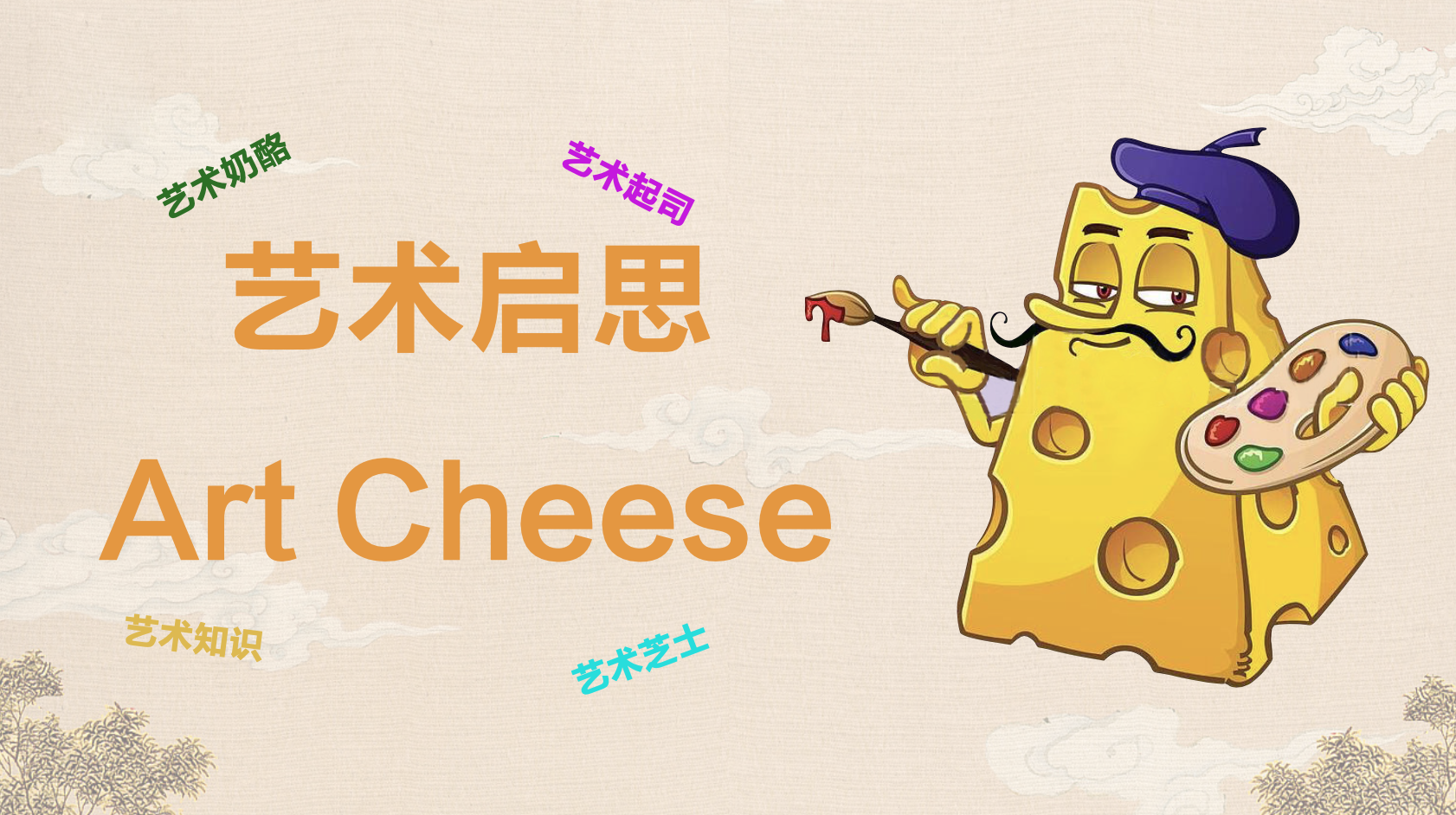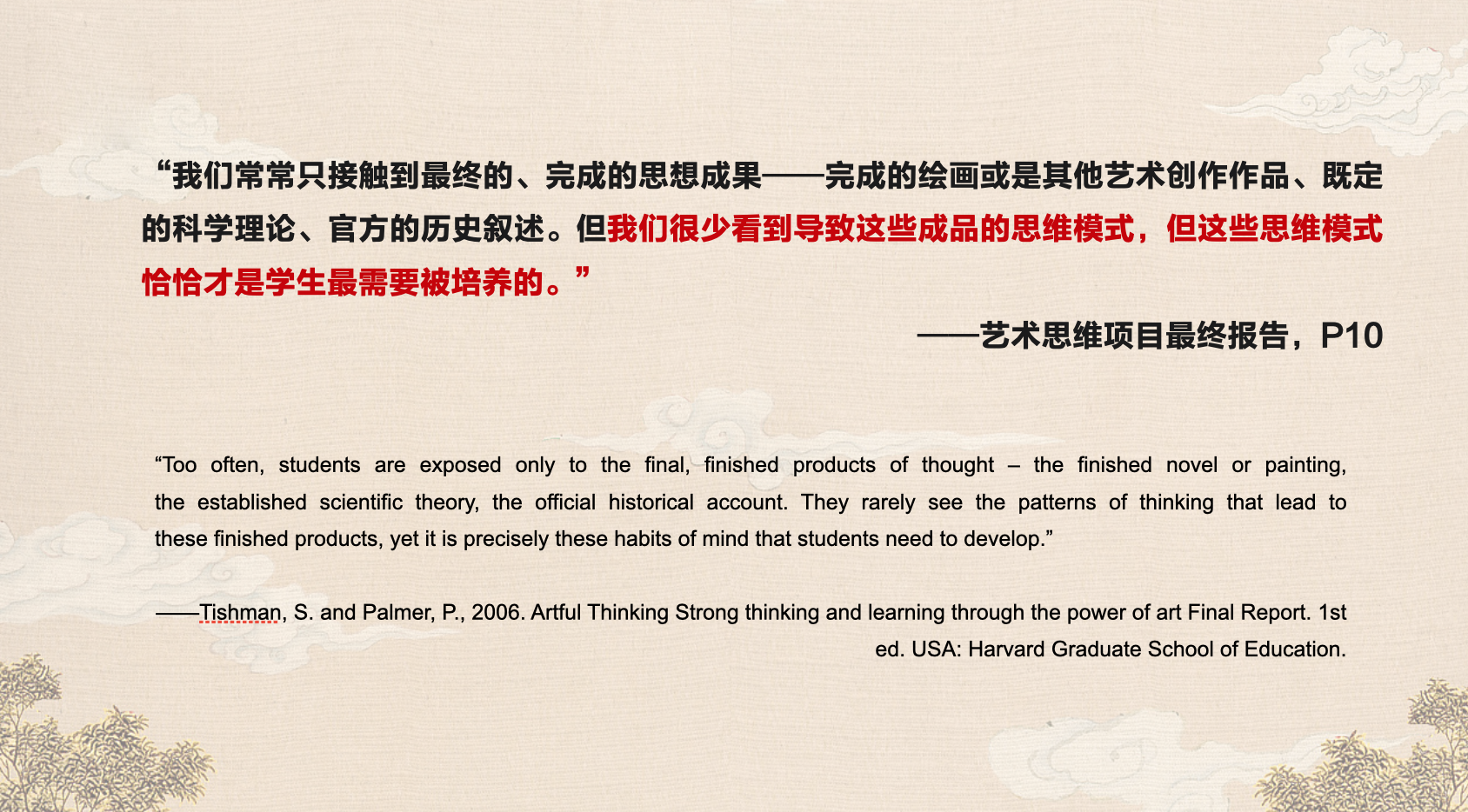




艺术启思是一个孵化中的项目,这个项目的起源在于Keying对目前“艺术教育”产业化的思考,她发现目前中国的艺术教育都太把艺术当做是“艺术”,因而教授的永远是艺术作为艺术的最后那个结果而已,这类教育缺乏可持续性。Keying认为,传统思维中,“艺术”二字总是作为一个名词出现,但是她想实践的艺术教育,可以将“艺术”二字作为动词短语来看待,即“以艺术的方式去学习和体悟”,艺术在这里变成了一种思维。Keying想在她的艺术教育中实践的,正是艺术带来的思维。Keying以哈佛大学零计划中Artful Thinking艺术思维项目的研究结果为理论基础,构想了一套用艺术来启发思维的课程,Keying给它取名为“艺术启思”。哈佛大学艺术思维项目研究认为,“我们常常只接触到最终的、完成的思想成果——完成的绘画或是其他艺术创作作品、既定的科学理论、官方的历史叙述。但我们很少看到导致这些成品的思维模式,但这些思维模式恰恰才是学生最需要被培养的。”基于此,Keying在本项目中,旨在将艺术作为培养学生思维倾向的一种力量和方法,同时也鼓励学生解开艺术作品的深度和复杂性、提出创造性的问题、进行多样化的观察、探索多种观点,并寻求与个人联系,而达到与其他学科以及更广阔世界的联系。
Art Cheese is a project in incubation. Its origin was Keying's reflection on the current industrialization of "art education" in China. She found that current art education in China tends to treat art as an end-result rather than a process, which lacks sustainability. Keying believes that in traditional thinking, "art" is always treated as a noun. In her concept of art education, "art" can be treated as a verb phrase, which means "learning and experiencing in an artistic way." Art here becomes a way of thinking. Drawing on the research results of the Artful Thinking project in the Harvard University's Zero Plan, Keying has conceived a set of curriculum for inspiring thinking with art, called "Artistic Inspiration". The research of the Artful Thinking project found that "we often only encounter the final finished products, completed paintings or other artistic works, established scientific theories or official historical narratives. But we rarely see the thinking patterns that lead to these products, which are exactly what students need to cultivate." Based on this finding, Keying aims to use art as a force and method to develop students' thinking tendencies, encourage them to unlock the depth and complexity of art works, propose creative problems, carry out diversified observations, explore various viewpoints, and seek connections with their personal experience, other disciplines, and the broader world.